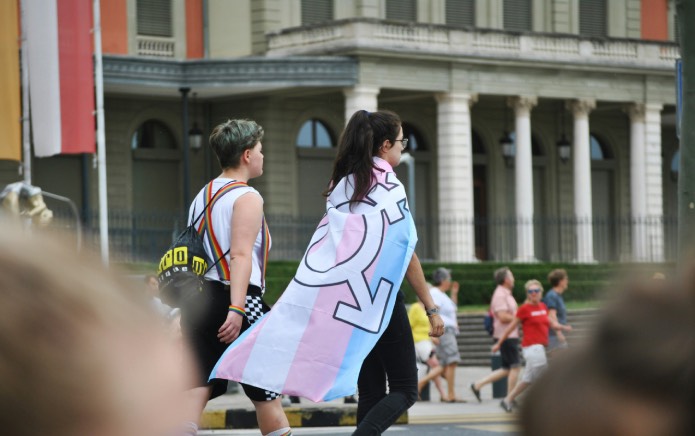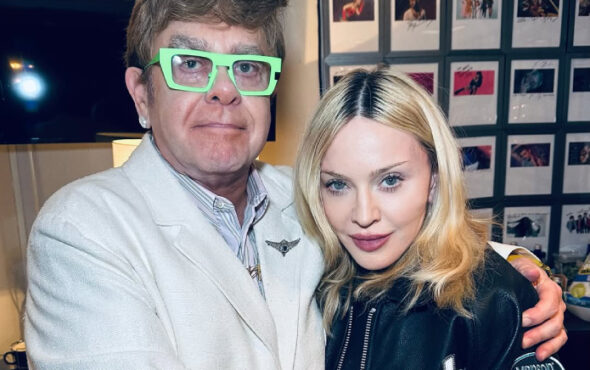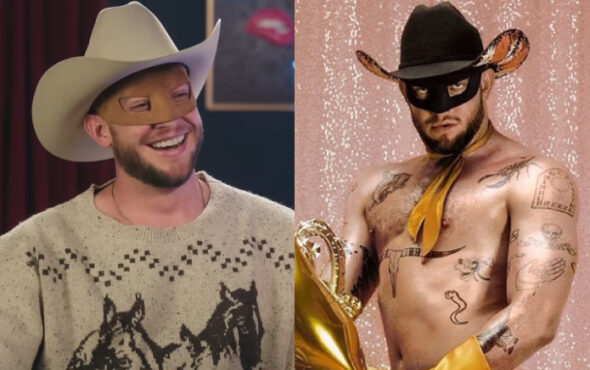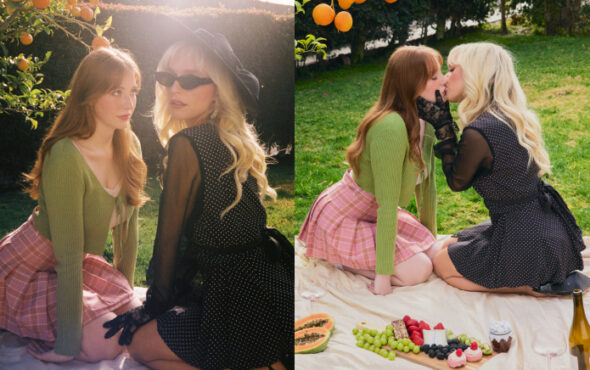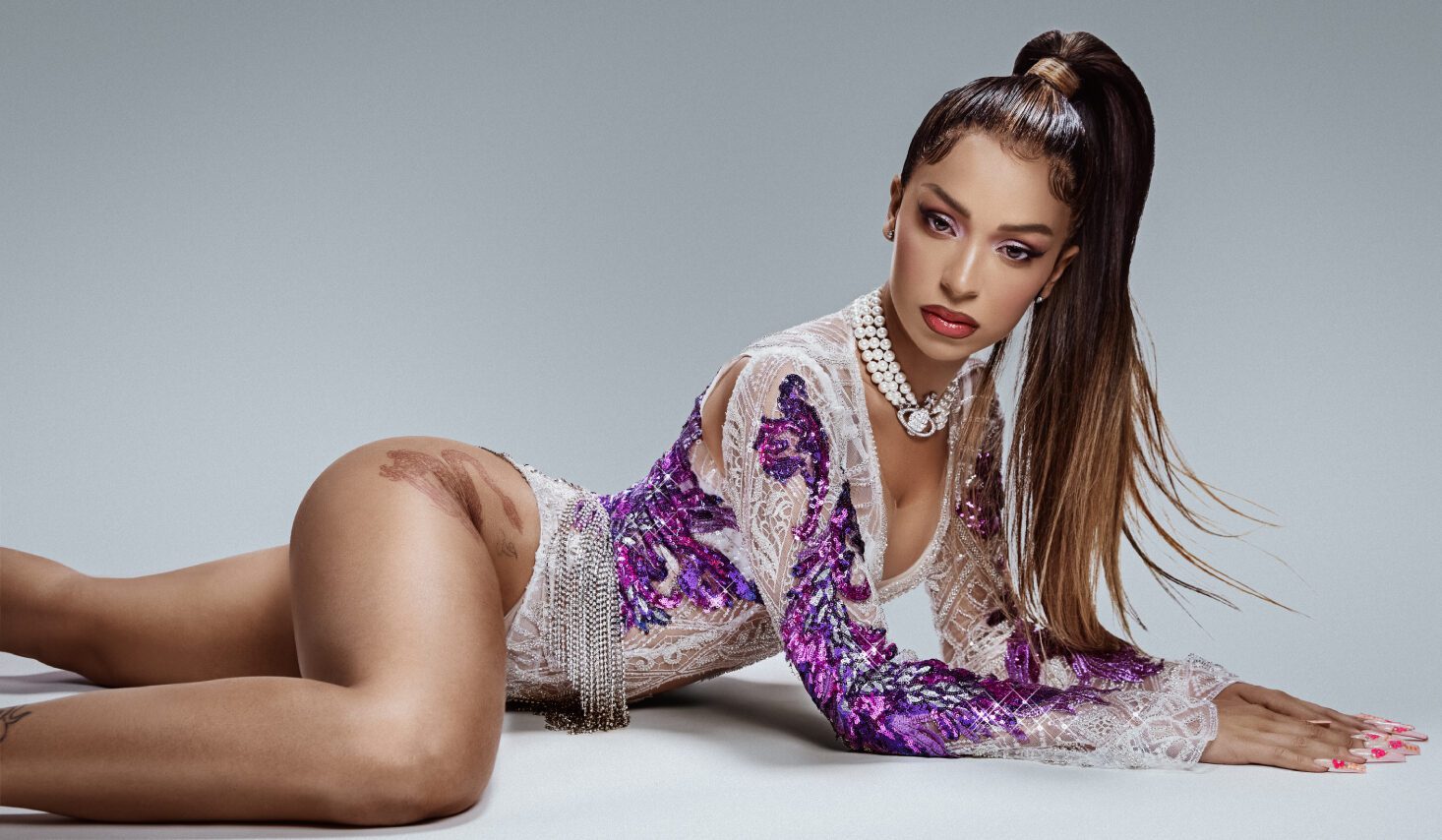
Back in 2016, a 19-year-old girl in Barcelona released a cover of Rihanna’s latest hit Work entitled Pai. The video went viral and Alba Farelo, better known as Bad Gyal, took advantage of her increasing popularity and released her first EP Slow Wine Mixtape in the same year.
At that time she released Fiebre, her biggest hit so far, which has accumulated thousands of views on YouTube as well as 60 million streams on Spotify. She climbed her way up to become one of the most popular artists in the Latin music scene without any help from labels until 2019 when she signed with Interscope, home of great artists such as the likes of Lady Gaga as well as new stars like Kali Uchis and Billie Eilish.
Currently, she is enjoying a growing international recognition and is ready to introduce her particular approach to urban music to the world, which has brought her the title of dancehall queen wherever she goes. In this interview, the Spanish-Catalan sensation talks with GAY TIMES about what is it like to be a woman in the current music industry and how the pandemic impacted her work, before sharing her opinion on Brazil’s biggest drag star, Pabllo Vittar.
Hi Bad Gyal, how are you?
Very well thank you, and you?
Very well, thanks! First of all I’d like you to tell us about what you are doing right now in terms of your career. Are you still working on the promotion of your last album Warm Up? Or are you working on a new single?
Right now I’m composing. I can’t say that I’m making an album yet, I’m in the process of finding myself. My intention is to one day be able to produce a larger format, with a more powerful concept and to be able to work on themes that are linked to each other. The little I’m doing now is basically getting into this work dynamic.
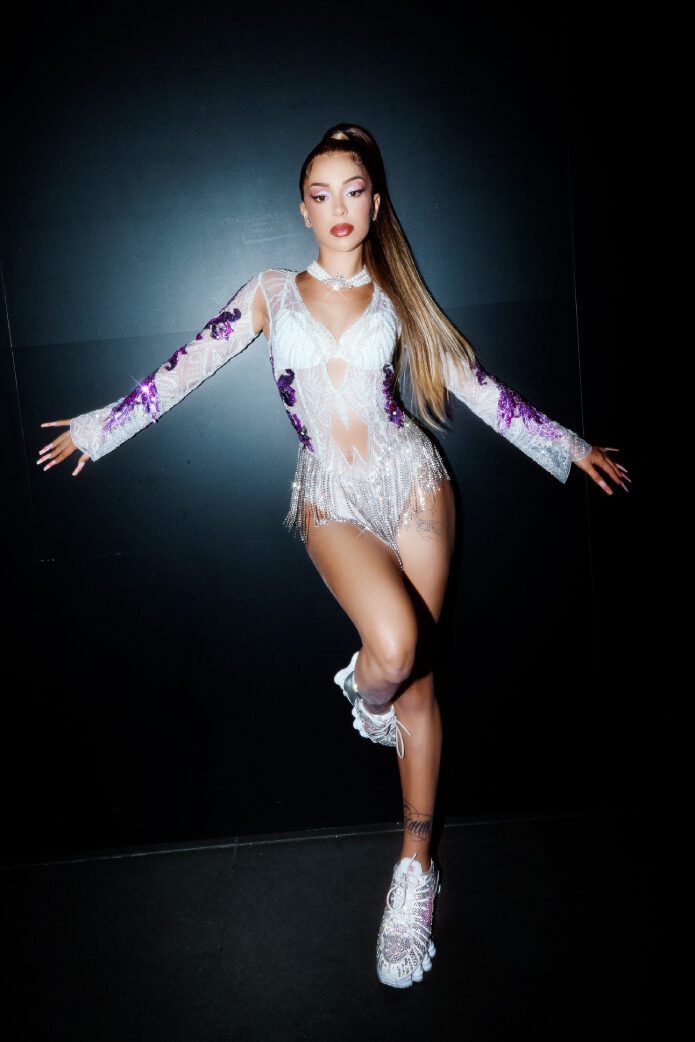
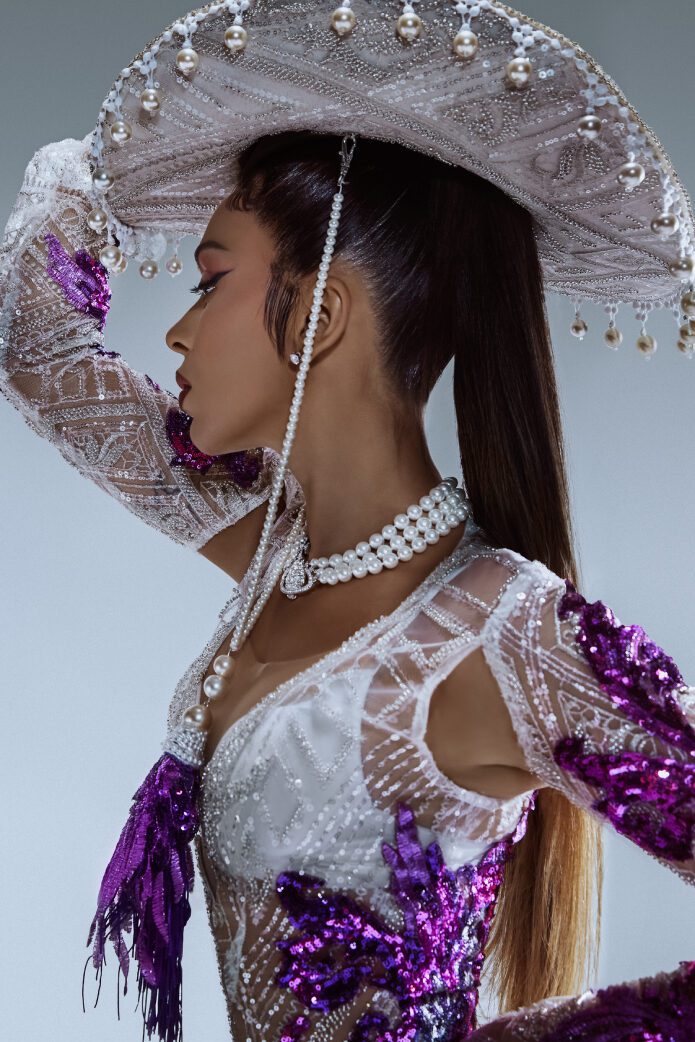
How important is the visual part of your work? The videos of your songs are very well done.
It’s something I like. I feel lucky to be able to apply it to my work, to be able to put together various things that I like, such as music, art, fashion. I feel that everything is an opportunity to express myself and to show a little more of what I like. In the end I also have a passion for beauty and I like my work to look beautiful. The visual part of my job is something very important to me.
Let’s talk a bit about Drag Race. You were a guest judge in the first season of Drag Race España. Were you already a fan of the franchise?
I didn’t really know much about it. I had not seen it. I do have many friends who are fans. When I was invited I started to watch it, to find out what it is like, what they do and I liked it. But when I went there and saw everything they did, the amount of changes they made to makeup and clothes, I was blown away and surprised with the skills they need to be able to serve all these looks. It’s not only the visual, it’s the attitude. You have to be funny. It’s a whole set of things because in the end, it’s art. I was very surprised because it’s not easy at all.
In the promotional videos of Drag Race you said you were a little bit like a drag queen. Where does the inspiration for your looks come from?
Actually, I don’t have very specific references. We live in the era of Instagram, social networks and the internet. On Instagram I find a lot of inspiration from old divas, vedettes, old photographs. Sometimes I don’t know who the girl is, but I’m inspired by her outfit and hair. There are many trends that hip-hop divas set and that have remained until today. A bit of everything. The 2000s blew me away. In the end I’m inspired by what I like and I always try to bring these things to my field.
Is there a drag queen that you especially like, that inspires you?
From Drag Race España I really liked Sagittaria and Carmen Farala. They are my favourites. You could see a lot that they have a passion for fashion and they applied it to their looks. You could see the fashion references, and that’s cool.
Speaking of drag queens, do you know Pabllo Vittar?
She’s been following me on Instagram for a long time. And I follow her. We have followed each other for a long time. I always see what she is doing.
What do you think about her?
I don’t speak Portuguese so I don’t get the lyrics. I do listen to Brazilian music but the lyrics don’t stay that long because I don’t understand them. But I always see what she makes, her looks, her wigs, her collaborations. She collaborates with everyone and it’s really cool. She is huge in Brazil, very well known.
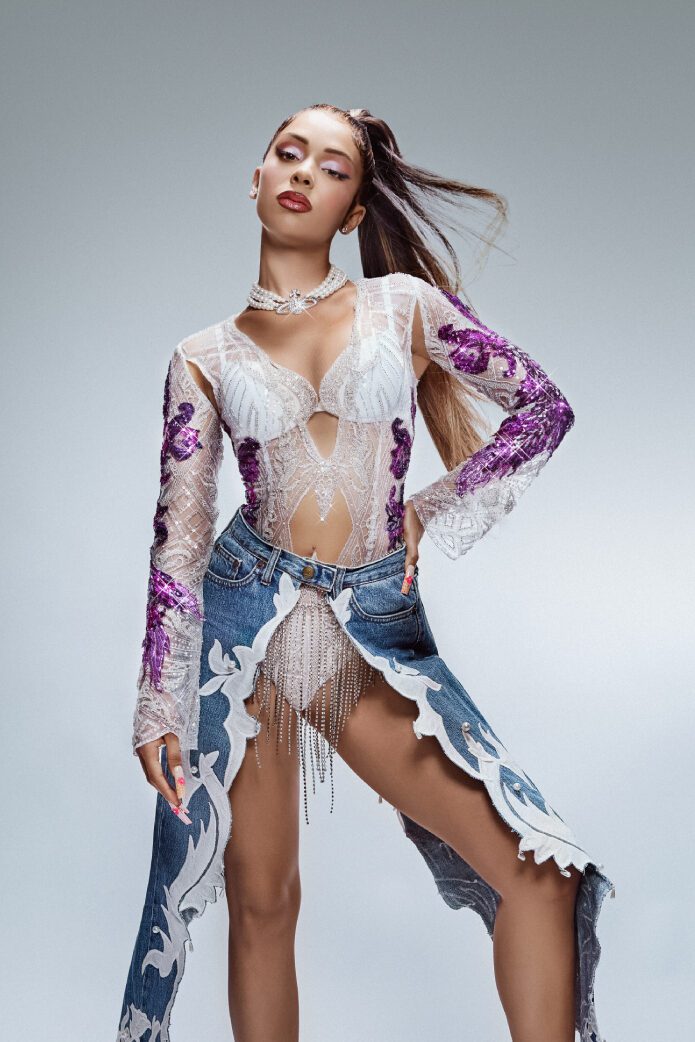
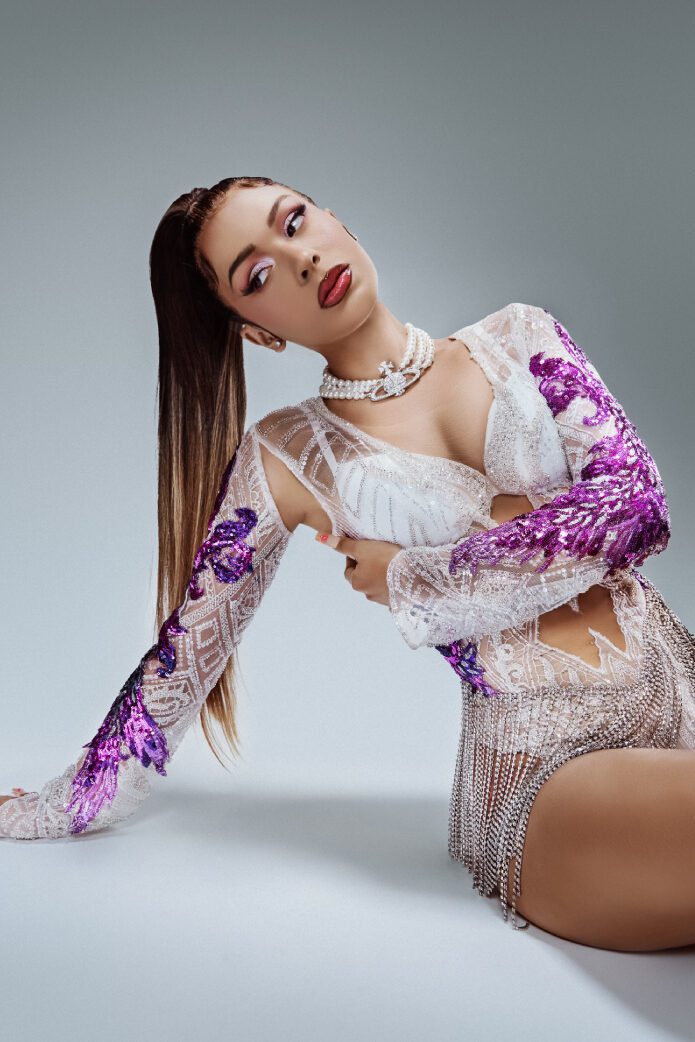
The music industry is mostly made up by men. Have you noticed any improvement for women? Is there still discrimination or sexism?
Well, in the end it’s like any other sector. Sexism is there, it’s something that is in our society and it’s in many different places, not only in music. There are different kinds of people everywhere. Some people reduce your credibility, thinking that behind what you do there is someone else simply because you are a woman. They always question what you really are capable of doing. But I have always stayed in my path. What you do and how you behave speaks for itself. I try not to show any insecurities, to be sure of myself, I think that is what you need more if you want to dedicate yourself to music being a woman. Have a clear mind about the reasons why you do what you do and where you want to get. Do not let any negative situations stop you.
Do you stand as an ally of the LGBTQ+ community?
I will always support the community because of my values, and because the community has always supported me. I understand that it’s a cause that must always be fought for; that there is equality, justice and no more discrimination, abuse or murders. It is a very harsh and sad reality. We have grown up in this society, in this reality, we have normalized it and now we have to deconstruct it. I will always be an ally. A world without this community makes no sense. It’s part of our reality, of our life, they are part of the people we love, of our families. It’s very sad that there are people who do not want to accept it. Non-tolerance is counterproductive for everyone. I will always support the community in whatever way I can.
How did the pandemic impact your work?
Mainly during the first year, it changed my work a lot. All the concerts that we had booked for last year were cancelled. We had concerts in Spain, Latin America and the United States. We had the whole year super organized. And we were locked up at home so that all the plans I had made, disappeared. At first we couldn’t even leave the house to work. I had to record myself at home. I had to reassemble my mini-studio at home, to refresh a little, learn to record with a new program, which I had not mastered before, so in a way, it did help me with that. The truth is that it was very hard. As soon as I was able to get out of home to record I was very grateful.
You previously mentioned that Warm Up was intended to be played before going out to party. Unlike what we thought at the beginning of the pandemic, home parties are still the main alternative. It was a bit foreboding too, don’t you think?
We all need to adapt to this new situation. It is what it is. Although we cannot go anywhere we want, people still want to continue sharing and listening to music. We create our own parties or simply meet with our friends so that we have something to stick to.
Recently, you created your first fashion collection with Bershka. What were your references?
I was not inspired by anything in particular. What I wanted to do was a collection made up of things that I would wear myself on a day-to-day basis. In fact, right now I’m wearing a dress from the collection. They are clothes that I would normally use during the week for attending meetings or doing errands. In the end it is all the clothes that I like, as I was saying, I really like the 2000s’ fashion, the shiny materials, the strong prints.
BAD GYAL WEARS:
Custom made embellished body and skirt Montenegro
Cowboy custom made hat Vivascarrion
Vintage choker Vivienne Westwood
Customized sneakers Nike
